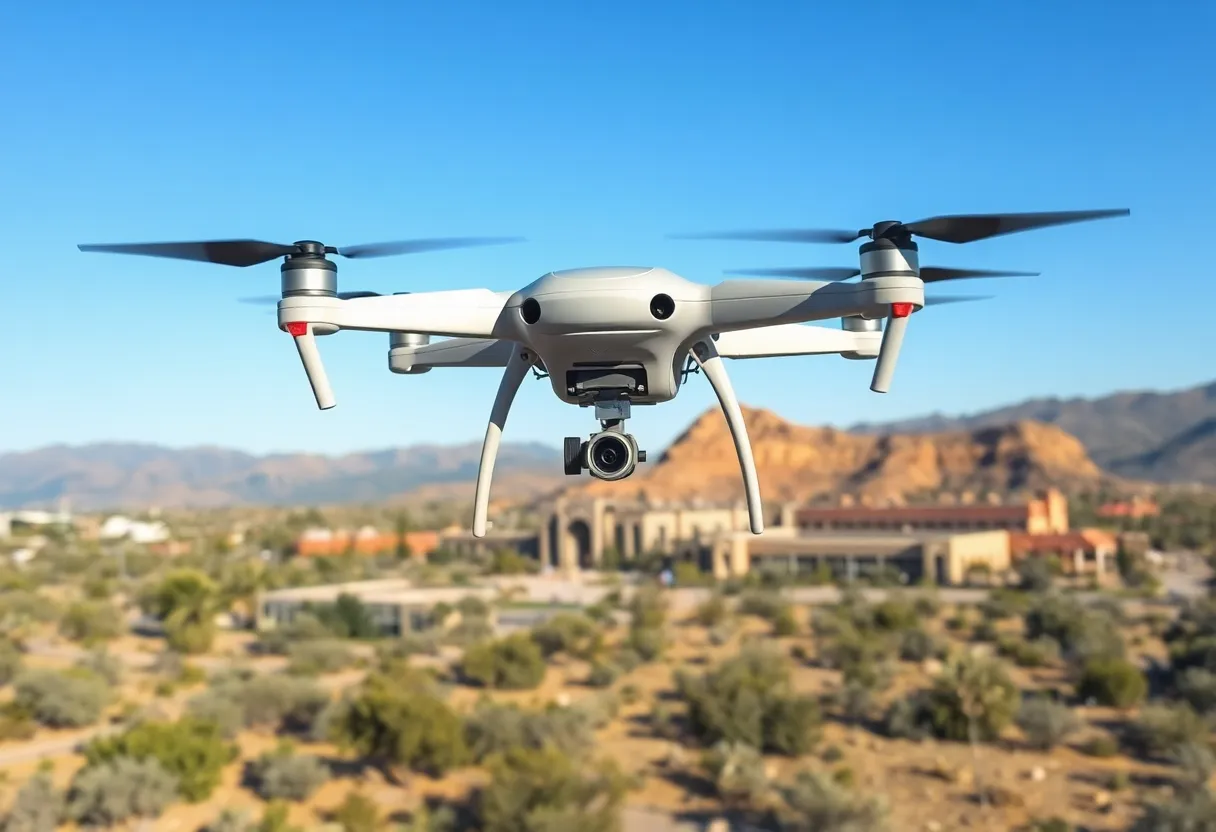Tucson, AZ, October 5, 2025
Raytheon has announced a significant investment of $10 million in drone technology research and development in Tucson, Arizona. This initiative aims to create 100 engineering jobs while collaborating with the University of Arizona. The focus is on enhancing drone capabilities for both defense and civilian applications, positioning Tucson as a key player in the aerospace and defense sectors. This investment will not only boost the local economy but also drive technological innovation in unmanned systems.
Tucson, AZ – Raytheon Invests $10 Million in Drone Technology R&D
In a major boost to the local economy and technological innovation, Raytheon, the aerospace giant with a significant presence in Tucson, Arizona, has announced a $10 million investment in research and development for drone technology. This initiative, unveiled on October 5, 2025, aims to advance unmanned systems for both defense and civilian applications, creating immediate opportunities for the region’s workforce and academic institutions.
Job Creation and Collaboration Details
The project will employ 100 engineers dedicated to pioneering advancements in drone capabilities. These roles will focus on enhancing autonomy, efficiency, and safety in unmanned aerial systems. In a key partnership, Raytheon will collaborate closely with the University of Arizona, tapping into the university’s expertise in engineering and aerospace studies. This alliance is expected to foster innovation through shared resources, joint projects, and talent development programs.
The investment underscores Tucson’s growing role as a hub for aerospace and defense technologies. By prioritizing R&D in drones, the initiative addresses pressing needs in sectors like surveillance, logistics, and emergency response. For defense applications, the work could improve reconnaissance and tactical operations, while civilian uses might include disaster relief and environmental monitoring.
Impact on Local Economy and Innovation Ecosystem
Raytheon’s expansion in Tucson is set to inject vitality into the local job market, particularly for skilled professionals in STEM fields. The addition of 100 new engineering positions will not only provide stable employment but also attract additional talent to the area, potentially spurring further business growth. Local universities and vocational programs stand to benefit from increased funding and internship opportunities, strengthening the pipeline of qualified workers.
From an innovation standpoint, this R&D effort aligns with broader trends in unmanned systems. Drones have evolved from niche tools to essential assets across industries, driven by advancements in AI, sensors, and battery life. Raytheon’s focus on dual-use technologies—applicable to both military and commercial purposes—positions Tucson as a leader in this space. The collaboration with the University of Arizona will likely accelerate breakthroughs, such as improved navigation in challenging environments or integration with existing infrastructure.
Background on Raytheon’s Tucson Operations
Raytheon has long been a cornerstone of Tucson’s economy, with facilities that employ thousands and contribute significantly to the state’s high-tech sector. The company’s roots in the area trace back decades, evolving alongside the aerospace industry’s growth in the American Southwest. This latest investment builds on previous commitments to R&D, reflecting confidence in Tucson’s infrastructure, workforce, and strategic location near testing sites and military bases.
The timing of the announcement comes amid a surge in demand for advanced drone solutions globally. Governments and businesses alike are investing heavily to meet regulatory standards and operational challenges. In Arizona, where the aerospace industry supports over 200,000 jobs statewide, initiatives like this reinforce the region’s competitive edge. The project also highlights the importance of public-private partnerships in driving technological progress without relying solely on federal funding.
Broader Implications for Unmanned Systems
Advancements from this $10 million R&D push could ripple beyond Tucson, influencing national and international standards for drone deployment. For defense, enhanced unmanned systems might reduce risks to human personnel in high-stakes scenarios. On the civilian side, innovations could streamline agriculture, urban planning, and delivery services, making operations more efficient and cost-effective.
Tucson’s selection for this project is no accident; the city’s dry climate and expansive landscapes are ideal for testing drone prototypes. Combined with the University of Arizona’s research capabilities, the area offers a unique ecosystem for rapid iteration and real-world validation. As the initiative unfolds, it will likely draw interest from suppliers, startups, and international partners, further embedding Tucson in the global drone technology network.
Overall, Raytheon’s investment signals a promising chapter for unmanned systems development. By employing 100 engineers and partnering with the University of Arizona, the company is not only advancing technology but also investing in the people and institutions that will shape its future. This move reinforces Tucson’s status as an innovation powerhouse in the aerospace field.
FAQ
What is the amount of Raytheon’s investment in drone technology R&D in Tucson?
$10 million
Where is Raytheon’s major presence for this project?
Tucson, Arizona
How many engineers will the drone technology project employ?
100 engineers
Which institution is Raytheon collaborating with on this initiative?
University of Arizona
What applications will the unmanned systems target?
Defense and civilian applications
When was the announcement made?
October 5, 2025
Key Features of Raytheon’s Drone Technology R&D Project
| Feature | Description |
|---|---|
| Investment Amount | $10 million dedicated to R&D |
| Location | Tucson, AZ – Raytheon’s major presence |
| Employment | 100 engineers to be hired |
| Partnership | Collaboration with University of Arizona |
| Focus Areas | Unmanned systems for defense and civilian applications |
| Announcement Date | October 5, 2025 |




